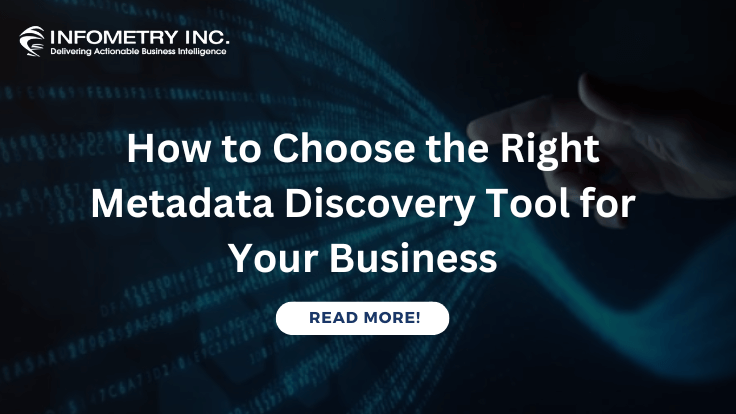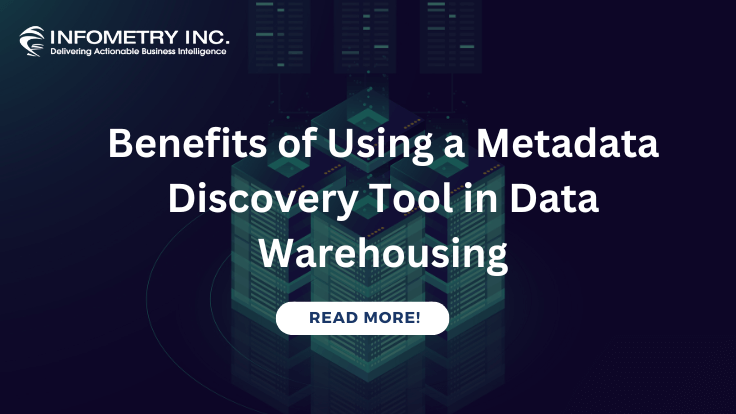
How to Seamlessly Share Data with More Users in Snowflake?
August 12, 2024
How to load data from NetSuite to Snowflake destination?
August 22, 2024Did you know businesses lose an average of 12% of their revenue annually due to poor data quality and siloed information? In today’s data-driven world, this is simply unacceptable.
The good news? Integrating your cloud-based ERP system, like NetSuite, with a powerful data warehouse like Snowflake can unlock a treasure trove of insights to optimize operations and drive strategic decision-making. However, the process of connecting these platforms can be a complex one.
This blog post will guide you through the challenges of connecting NetSuite to Snowflake and introduce Infometry’s solution for achieving a seamless and efficient data flow.
Why Connect NetSuite to Snowflake?
Before diving into the technical details, let’s understand the value of integrating NetSuite with Snowflake:
- Centralized Data Storage: Consolidate data from various sources into Snowflake, creating a single source of truth.
- Enhanced Analytics: Perform advanced analytics and reporting on NetSuite data using Snowflake’s powerful SQL engine.
- Scalability: Handle growing data volumes effortlessly with Snowflake’s scalable architecture.
- Real-Time Insights: Enable real-time data synchronization for up-to-date insights and decision-making.
Steps to Connect NetSuite to Snowflake
Connecting NetSuite to Snowflake involves several steps, from data extraction to loading into Snowflake. Here’s a detailed guide:
1. Extract Data from NetSuite
The first step is to extract data from NetSuite. This can be done using various methods such as:
- SuiteTalk Web Services: NetSuite provides SuiteTalk, a web services platform, for accessing data programmatically. You can use SuiteTalk to extract data in XML or JSON format.
- SuiteAnalytics Connect: This feature allows you to access NetSuite data using SQL. You can create custom queries to fetch the required data.
2. Transform Data
Once the data is extracted, it may need to be transformed to fit the schema and requirements of your Snowflake tables. This involves:
- Data Cleaning: Remove duplicates, correct errors, and standardize data formats.
- Data Mapping: Map NetSuite fields to corresponding Snowflake columns.
- Data Enrichment: Enhance data by adding relevant context or merging with other data sources.
3. Load Data into Snowflake
After transforming the data, the next step is to load it into Snowflake. There are several ways to achieve this:
- Snowflake’s Data Loading Tools: Snowflake provides various data loading tools such as Snowpipe, Bulk Loading, and External Tables. These tools facilitate efficient and scalable data loading.
- ETL Tools: Use ETL (Extract, Transform, Load) tools like Apache NiFi, Talend, or Matillion to automate the data loading process.
- Custom Scripts: Write custom scripts in languages like Python or Java to load data directly into Snowflake.
4. Schedule Regular Data Syncs
To keep your Snowflake data up-to-date, schedule regular data syncs from NetSuite. This can be done using:
- Scheduled Jobs: Create scheduled jobs in NetSuite to export data at regular intervals.
- Real-Time Data Pipelines: Implement real-time data pipelines using tools like Apache Kafka or AWS Kinesis to stream data continuously.
Challenges of Connecting NetSuite to Snowflake:
While both NetSuite and Snowflake offer significant value propositions, connecting them can be a complex endeavor. Here are some common challenges:
- Data Extraction Methods: Extracting data from NetSuite can be cumbersome, often requiring manual exports or custom scripting.
- Data Transformation: NetSuite data structures may not be readily compatible with Snowflake’s schema, requiring data transformation before loading.
- Data Refresh Frequency: Maintaining real-time or near real-time data synchronization between NetSuite and Snowflake can pose challenges.
- Expertise Gap: Setting up and maintaining a robust NetSuite-Snowflake integration often requires expertise in both platforms and data integration techniques.
Infometry: Your Partner for Effortless NetSuite-Snowflake Integration
Infometry, a leading provider of data analytics and cloud solutions, offers a comprehensive approach to connecting NetSuite and Snowflake. Our solutions address the challenges mentioned above, ensuring a seamless and efficient data flow.
- Automated Data Extraction: Infometry utilizes pre-built connectors and automation tools to eliminate manual data exports and scripting, saving time and resources.
- Seamless Data Transformation: We leverage our expertise in data mapping and transformation to ensure smooth data transfer from NetSuite to Snowflake’s schema.
- Real-Time Data Synchronization: Infometry’s solutions can configure real-time or scheduled data refreshes, keeping your Snowflake data warehouse constantly updated with the latest information from NetSuite.
- Simplified Management: Our user-friendly tools empower businesses to monitor and manage their NetSuite-Snowflake integration without the need for extensive technical knowledge.
Benefits of Connecting NetSuite and Snowflake with Infometry:
- Enhanced Business Intelligence: Combining NetSuite’s operational data with Snowflake’s powerful analytics capabilities fosters deeper insights into business performance.
- Improved Decision-Making: Access to real-time or near real-time data empowers data-driven decision making across all levels of the organization.
- Streamlined Reporting: Generate comprehensive reports that integrate data from both NetSuite and Snowflake, providing a holistic view of operations.
- Increased Efficiency: Eliminate manual data manipulation and reporting tasks, freeing up valuable resources for other strategic activities.
Quantifiable Results with Infometry:
Our NetSuite-Snowflake integration solutions have helped businesses achieve significant results:
- Reduced Data Integration Time by Up to 50% through automated processes and pre-built connectors.
- Improved Data Accuracy by 95% with robust data transformation and validation techniques.
- Enhanced Reporting Efficiency by 70% by automating report generation and data visualization.
Conclusion
Connecting NetSuite to Snowflake unlocks a wealth of possibilities for data analysis and business intelligence. Infometry’s expertise and comprehensive solutions bridge the gap between these two powerful platforms, ensuring a seamless and efficient data flow.
Ready to unlock the power of your NetSuite and Snowflake data? Contact Infometry today and discuss your specific requirements for a customized integration solution.




